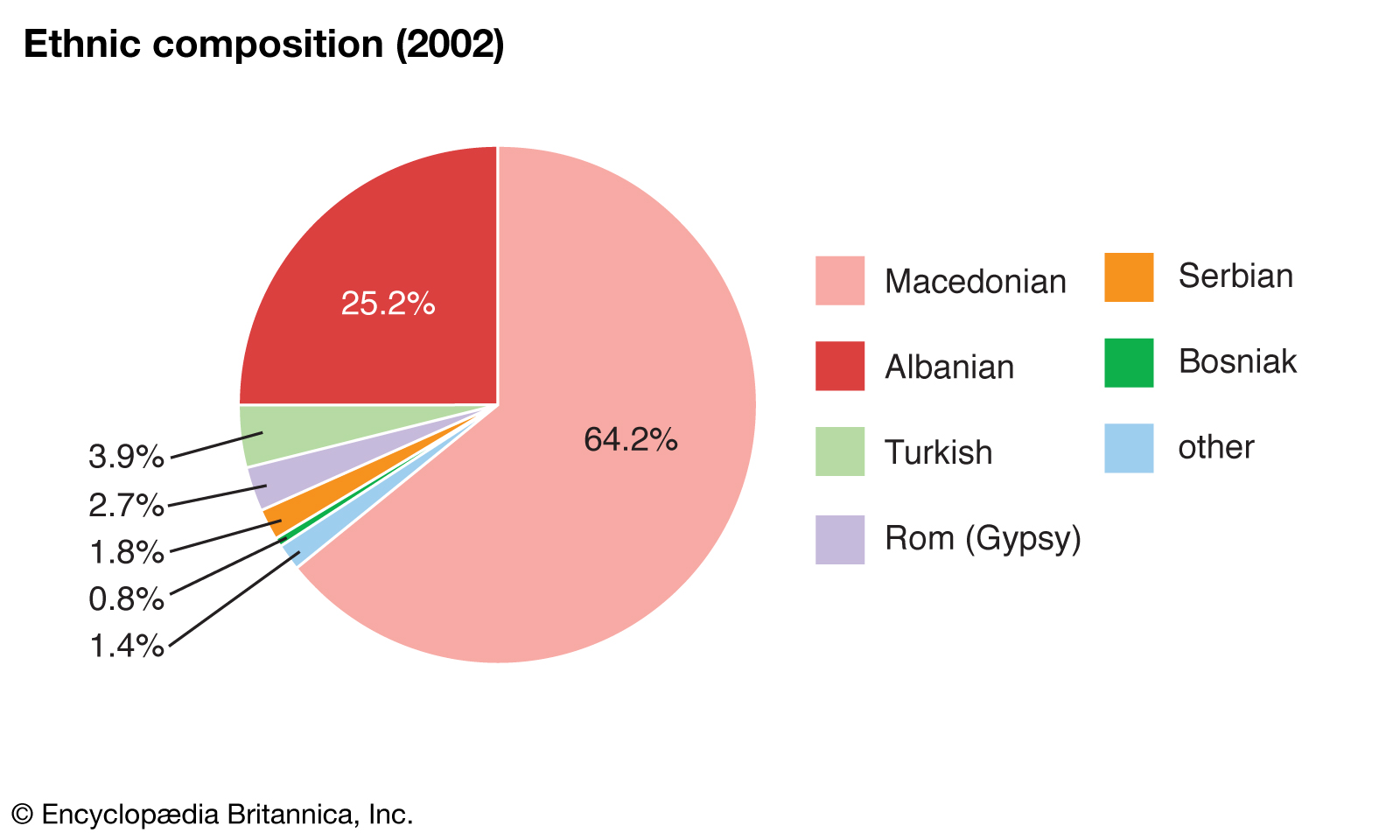By Aleksandar Popovski, UMD Member, Florida
After the main ruling and opposition party in Macedonia, along with the parties of the Albanian minority, signaled their support for the census, the boycott option has waned in popularity. Nonetheless, there is a significant number of fringe parties, both on the left and the right, that are openly calling for people not to register themselves on the census. In this article, we will demonstrate that even a mild form of boycott will have negative consequences for the ethnic make-up of Macedonia.
Although disputed by some, the data from the Macedonian census of 2002 are still the most widely used demographic statistics for the country. In our analysis, we will assume that the total population count has remained steady in the last 20 years. This assumption is disputed by those who claim that the population has declined upwards to 500,000 in this period due to emigration. This claim is not supported by factual research however, as most population estimates peg the number very close to the actual 2002 census numbers.
OFFICIAL 2002 CENSUS STATISTICS
|
Ethnicity |
Total numbers |
Percentage |
|
All |
2,022,547 |
100.00% |
|
Macedonians |
1,297,981 |
64.18% |
|
Albanians |
509,083 |
25.17% |
|
Other minorities |
215,483 |
10.65% |
SCENARIO 1: MILD BOYCOTT (5%)
Let’s assume that 5% of Macedonian residents do not fill out the census, with all other numbers unchanged. The resulting table would look like this:
|
Ethnicity |
Total numbers |
Percentage |
|
All |
1,957,648 |
100.00% |
|
Macedonians |
1,233,082 |
63.00% |
|
Albanians |
509,083 |
26.00% |
|
Other minorities |
215,483 |
11.00% |
In this scenario, the percentage of Macedonians would decrease roughly by 1%, while the percentage of minorities would increase by approximately 1%.
SCENARIO 2: MEDIUM BOYCOTT (10%)
In the event where 10% of the Macedonian population boycott the census, with all else being equal, the numbers would look like this:
|
Ethnicity |
Total numbers |
Percentage |
|
All |
1,892,749 |
100.00% |
|
Macedonians |
1,168,183 |
61.72% |
|
Albanians |
509,083 |
26.90% |
|
Other minorities |
215,483 |
11.38% |
In this scenario, Macedonian numbers would drop 2.46% from their 2002 levels, with Albanians increasing by 1.73% and the other minorities by 0.73%.
SCENARIO 3: STRONG BOYCOTT (20%)
A significant boycott of 20% of the Macedonian population, with all else being equal, will result in the following:
|
Ethnicity |
Total numbers |
Percentage |
|
All |
1,762,950 |
100.00% |
|
Macedonians |
1,038,384 |
58.90% |
|
Albanians |
509,083 |
28.88% |
|
Other minorities |
215,483 |
12.22% |
This scenario will have devastating effects for the demographic distribution. The Macedonian population would fall under 60% for the first time in census history, while the percentages of minorities would increase significantly. This, of course, ignores the effects of any population growth or the results of emigration. Statistical data shows that population growth, albeit stagnant overall, is the strongest among minorities, particularly Albanians.
Are the people supporting a boycott consciously or unconsciously leading Macedonia towards a reality where 50% or fewer of its residents are Macedonian? If that happens, who can possibly defend the need for a Macedonian state as a spiritual home of the Macedonian people? In a situation of near statistical parity in relation to the minorities, Macedonia will become a confederation of people. The idea of a unitary Macedonian state would die by itself. Are boycott supporters aware that this is the end result of their efforts?
Any opinions or views expressed in articles or other pieces appearing in UMD Voice are those of the author alone and are not necessarily those of the United Macedonian Diaspora and its young leaders’ program Generation M; the appearance of any such opinions or views in UMD Voice is not and should not be considered to be an endorsement by or approval of the same by UMD and Generation M.




